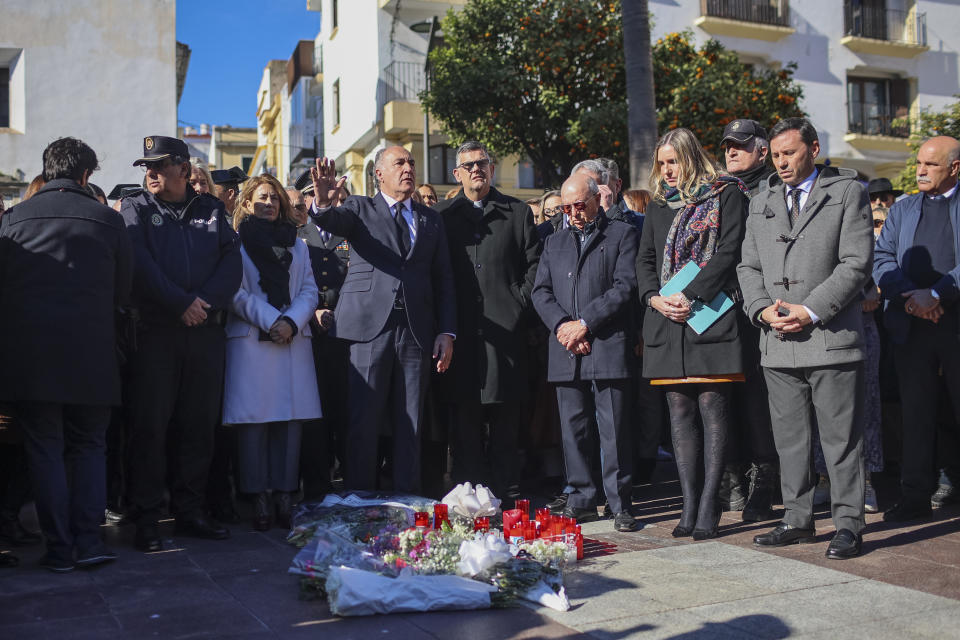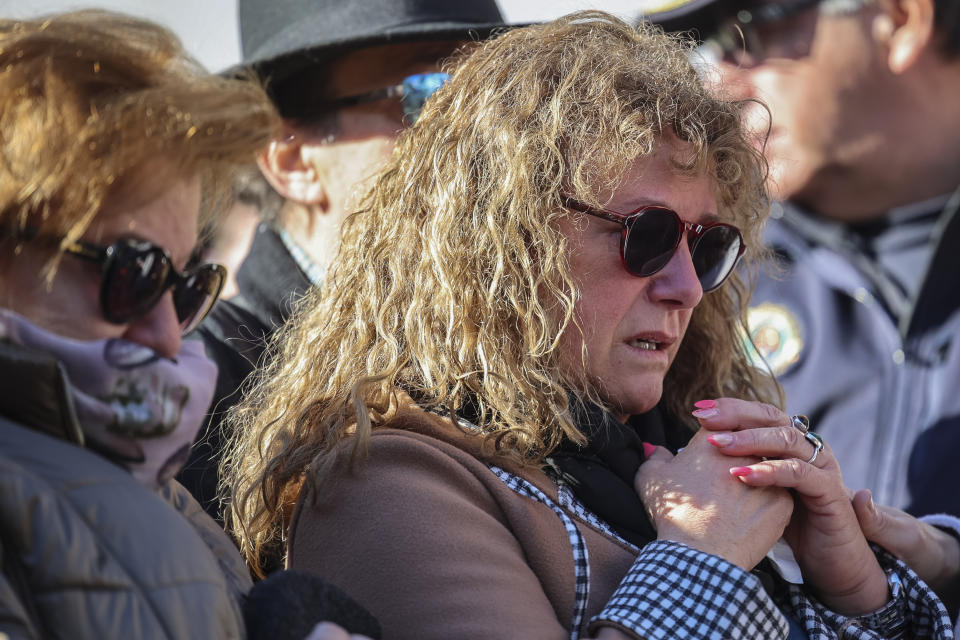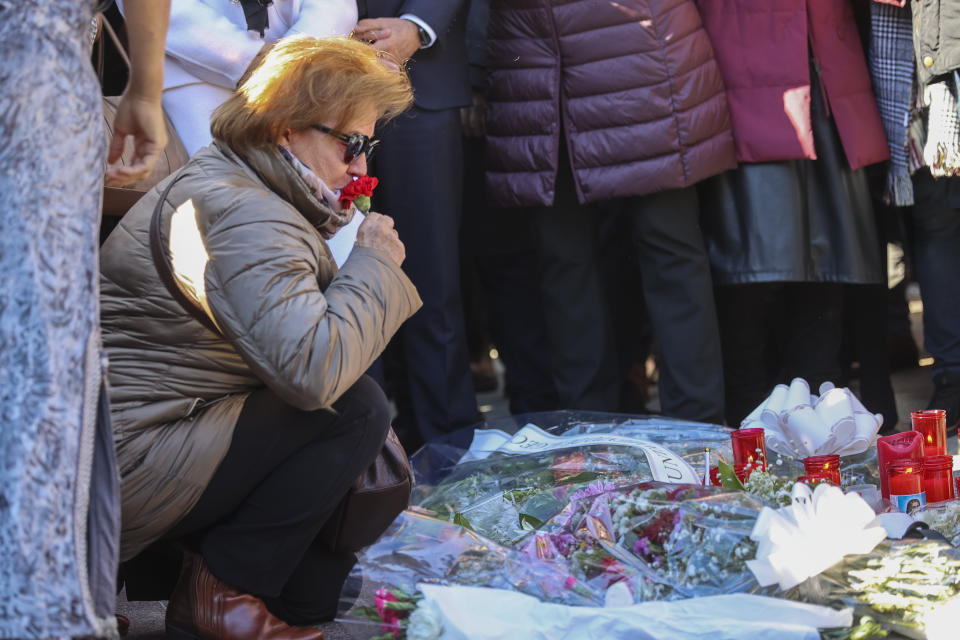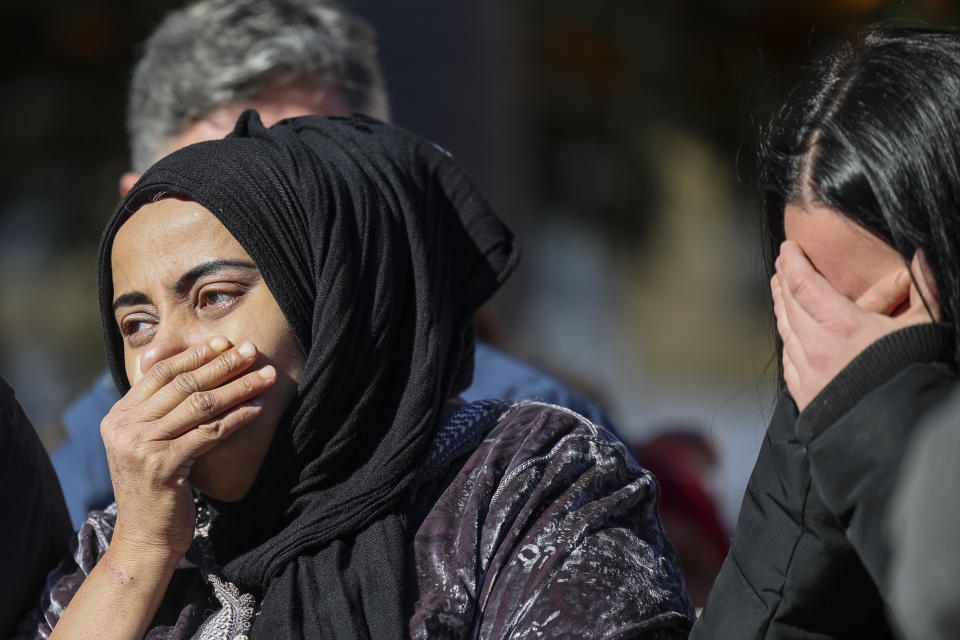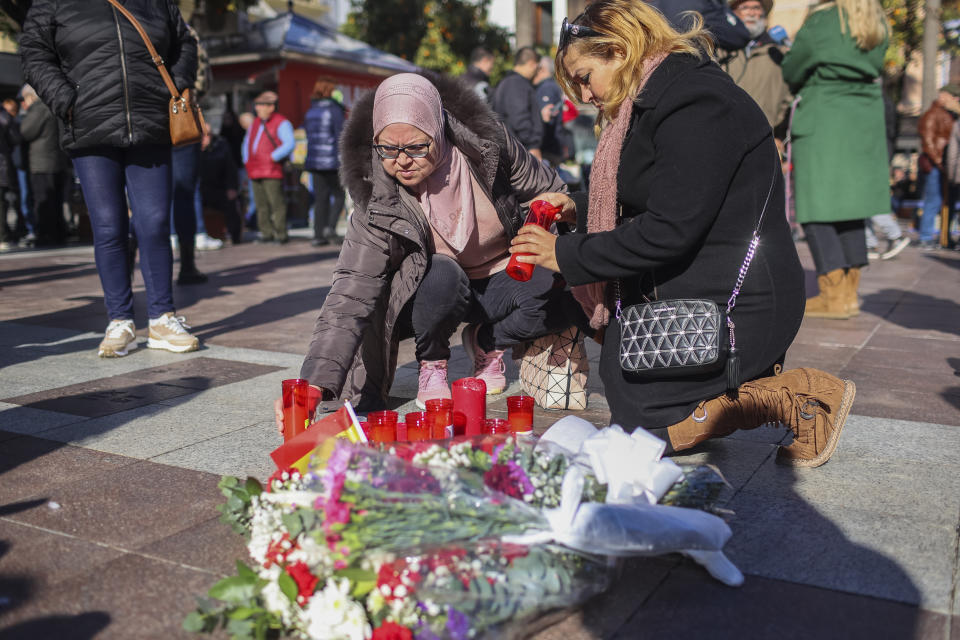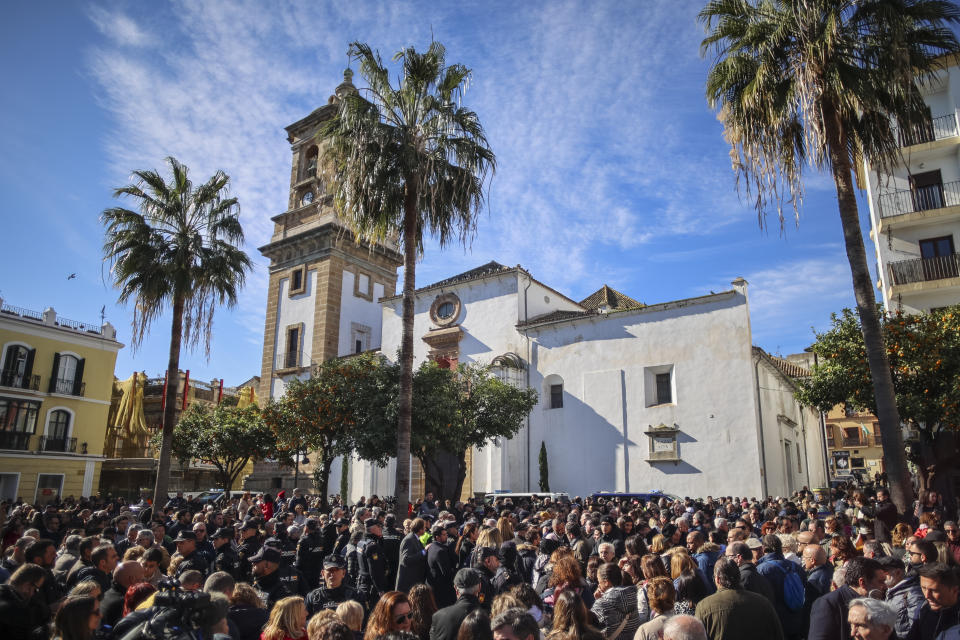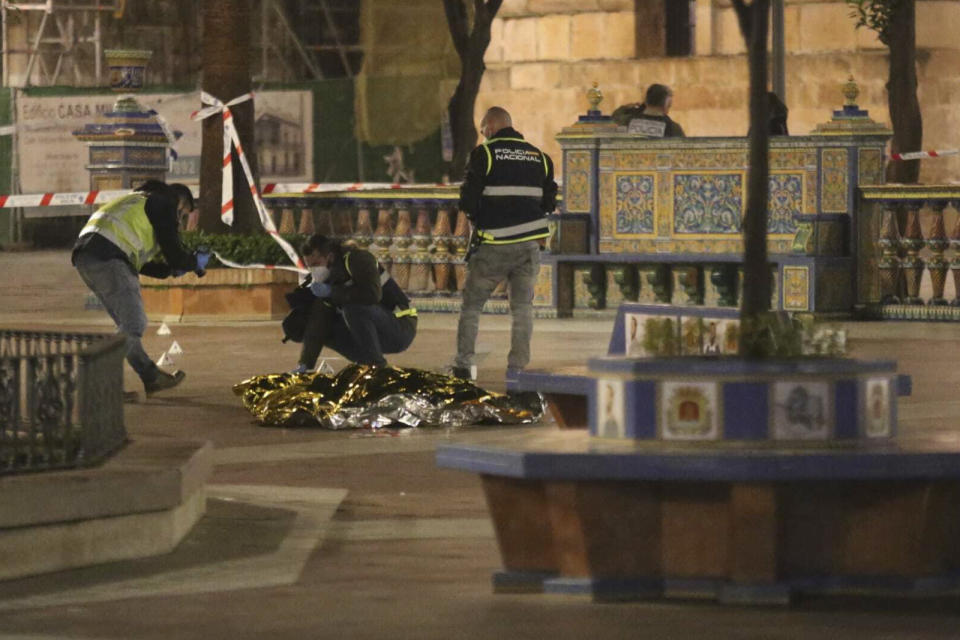Spain: Police raid home of suspect in church machete attacks
ALGECIRAS, Spain (AP) — Spanish police on Thursday raided the home of a Moroccan man held over the machete attacks at two Catholic churches that left a church officer dead and a priest injured in the southern city of Algeciras.
Police are still investigating the motive of the assault, but a National Court judge is investigating it as a possible act of terrorism. The suspect is believed to have acted alone.
Officers searched the as-yet unnamed suspect's home to “determine the nature, terrorist or otherwise,” of the alleged crime, Spanish Interior Minister Fernando Grande-Marlaska said.
The suspect is a Moroccan citizen with no prior criminal record “either in Spain or any other country,” the interior ministry said. The suspect had been under a deportation order since June last year due to his unauthorized migrant status in Spain.
The attacks have shaken the multicultural city, located near the southern tip of Spain across a bay from Gibraltar. Witnesses said that in the second incident, the assailant jumped on the altar of the Church of Nuestra Señora de La Palma, wielding a machete. He then attacked a sacristan — tasked with preparing Mass — inside the church and chased him into a town square before killing him.
A priest was wounded earlier at the San Isidro church. The Salesian religious order said on Thursday he was out of danger and would be able to leave the hospital where he was being treated.
The Algeciras town hall identified the deceased sacristan as Diego Valencia and the wounded priest as Antonio Rodríguez.
The parish priest for Nuestra Señora de La Palma, the Rev. Juan José Marina, told Spanish media he thinks he was the attacker’s intended target.
“In the same way that he sought out the priest at San Isidro and no one else, the same thing happened here,” Marina said. “If I had been here, I would be dead.”
A fellow sacristan who served with Valencia at the church, Manolo González, said the attacker climbed on the altar and Valencia came out “and asked to know what was going on."
Candles and flowers adorned the two small churches with whitewashed walls on Thursday. Flags were flown at half-staff in Algeciras, while a minute’s silence and a vigil was observed by the community, including a significant contingent from the city’s Moroccan population.
“This hurts us a lot,” said Nahual Mostanaquin. “All Moroccans, those here, in Morocco or France, no one wants these things to happen. It is a thing of madness,” she added. “(The victim) was a good man who did no harm to anybody. He hurt no one and everyone loved him.”
Aziz Handi added: ”We hope that it will never happen again because we live in peace here in Algeciras.”
Algeciras is a cosmopolitan port city and the first point of arrival for many boats from North Africa, putting it at the center of Spanish debates on irregular migration.
The Islamic Commission of Spain, which represents Muslims in the country, condemned the “abominable, murderous and heartless act” in “a sacred space for our Catholic brothers in Algeciras.”
The violent acts at the churches may inflame social tensions stoked in an election year by the far-right Vox party, which is vying to win more seats in local and national governments, as well as to form governing coalitions with the center-right Popular Party.
Vox’s leader, Santiago Abascal, linked the attack to his party’s platform of cracking down on unauthorized immigration. Vox, the third largest party in Spain’s parliament, also presents itself as the protector of Spain’s Catholic heritage in a time when active church membership is waning.
“He had an order of expulsion,” Abascal wrote on Twitter. “How many more like him could there be in Spain?”
But the regional president of southern Andalusia, Juanma Moreno of the Popular Party, said Algeciras has residents from 129 countries and had never suffered a similar attack.
“Nobody can (use this) to make generic statements about an ethnic or religious group,” Moreno said.
The secretary general of the Spanish Episcopal Conference, an organization of Spain’s Catholic bishops, appealed for unity.
“We cannot demonize any group,” César García said according to Spanish news agency EFE. “We cannot let ourselves be easily provoked, we cannot add fuel on the fire, we cannot lapse into demagogy and we cannot identify terrorism with any religion.”
___
O’Mahony reported from Madrid, Wilson reported from Barcelona.

 Yahoo News
Yahoo News 